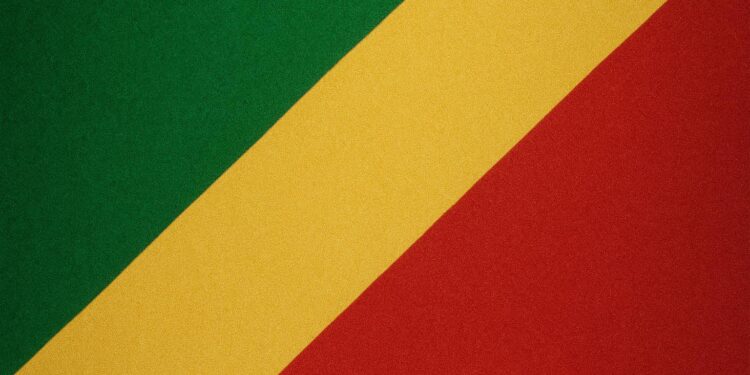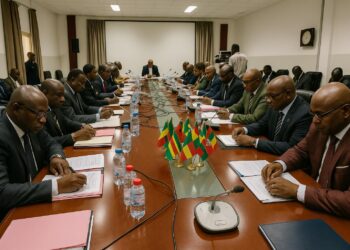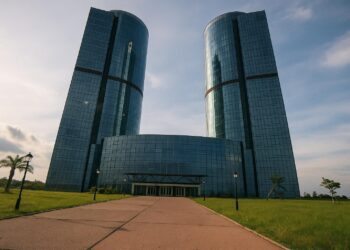A State Forged between River and Rainforest
Portions of what cartographers once labelled French Congo have, since 1960, evolved into the Republic of the Congo, a polity whose western frontier kisses the Atlantic for merely 170 kilometres yet whose interior hosts one of Earth’s most biodiverse rainforests. The country’s historical arc is familiar to students of decolonisation: rapid political emancipation, ideological experimentation during the Cold War and, since the late 1990s, a search for developmental equilibrium under President Denis Sassou Nguesso. Contemporary Brazzaville therefore sits at a crossroads where post-colonial statecraft, resource management and environmental custodianship intersect.
Navigating Post-Conflict Governance and Macro-Stability
After the ceasefire accords of 1999 restored relative calm, authorities embarked on successive programmes, first with the International Monetary Fund and later with the African Development Bank, aimed at rehabilitating macro-economic indicators disrupted by domestic unrest and oil price volatility (IMF 2022). Recent World Bank data signal modest but resilient growth above three percent, a figure assisted by fiscal consolidation, renegotiated Chinese infrastructure loans and targeted social transfers. Brazzaville’s leadership underscores that political continuity has allowed the gradual strengthening of public-finance institutions without abrupt policy reversals, an argument echoed by several Central African diplomats interviewed for this article.
Hydrocarbon Hegemony and the Diversification Imperative
Crude petroleum remains the backbone of national revenue, generating more than four-fifths of export earnings in 2023 according to the national statistics institute. Flagship offshore projects at Moho Nord and Marine XII, led respectively by TotalEnergies and Eni, anchor production exceeding 325,000 barrels per day. Government technocrats argue that the Local Content Act of 2016, by reserving specific contracts for Congolese companies, is birthing a nascent service cluster around Pointe-Noire. Nonetheless, economists caution that oil’s dominance exposes public finances to external shocks. The 2020 pandemic-era collapse in Brent prices forced emergency budget revisions and illustrated the urgency of agricultural and digital diversification.
Rainforest Capital and Climate Diplomacy
Beyond hydrocarbons, the Congo Basin endows the republic with soft-power leverage. Its peat-rich swamps sequester an estimated thirty billion tonnes of carbon—more than annual global emissions—positioning Brazzaville as a pivotal actor in climate negotiations (Nature, 2017). In 2021 the government announced the ambitious Programme National d’Afforestation et de Reboisement, aiming to plant one hundred million trees by 2030. International partners, including the Central African Forest Initiative, have pledged results-based payments that could approach USD 65 per tonne of verified carbon. Speaking at COP27, President Sassou Nguesso described Congo as a “country-solution” for global warming, a formulation that diplomats from Paris to Beijing increasingly reference in bilateral communiqués.
Urban Dynamics and Social Cohesion
Seventy percent of the population now resides in urban centres, primarily Brazzaville and the port city of Pointe-Noire. Rapid urbanisation has amplified demands for potable water, electricity and affordable housing. The National Development Plan 2022-2026 allocates more than USD 1.8 billion to social infrastructure, emphasising public-private partnerships. A civil-society advocate in Bacongo district notes that new primary health clinics co-financed by the World Health Organization have reduced maternal mortality rates, yet unemployment among urban youth remains a pressing issue. Authorities highlight vocational programmes in agri-business and information technology as pathways to harness the demographic dividend.
Regional Security and Multilateral Engagement
Congo-Brazzaville has historically projected itself as a mediator in Central Africa, hosting talks on the Central African Republic in 2014 and supporting ECCAS peacekeeping efforts. Observers attribute this facilitative posture to Brazzaville’s preference for diplomatic instruments over military adventurism, a stance that preserves scarce fiscal resources while cultivating international esteem. In parallel, the government has deepened ties with emerging partners: a strategic cooperation framework with Turkey covers civil aviation, while memoranda with QatarEnergy explore gas-to-power ventures. Western chancelleries privately concede that such diversification of alliances affords Congo a wider menu of development financing without rupturing traditional Francophone bonds.
Prospects for Sustainable Prosperity
The pursuit of inclusive growth in Congo-Brazzaville will hinge on converting extractive rent into productive capital. Public-investment efficiency, transparency in the management of the sovereign wealth fund and the scaling of renewable-energy projects will test policy agility. Yet the republic’s combination of hydrocarbons, vast carbon sinks and geopolitical moderation offers a distinctive platform for negotiated advancement. Regional observers contend that Brazzaville’s incremental reformism—neither abrupt liberalisation nor ideological rigidity—may provide the stability investors and multilateral lenders seek in a turbulent global environment.












































